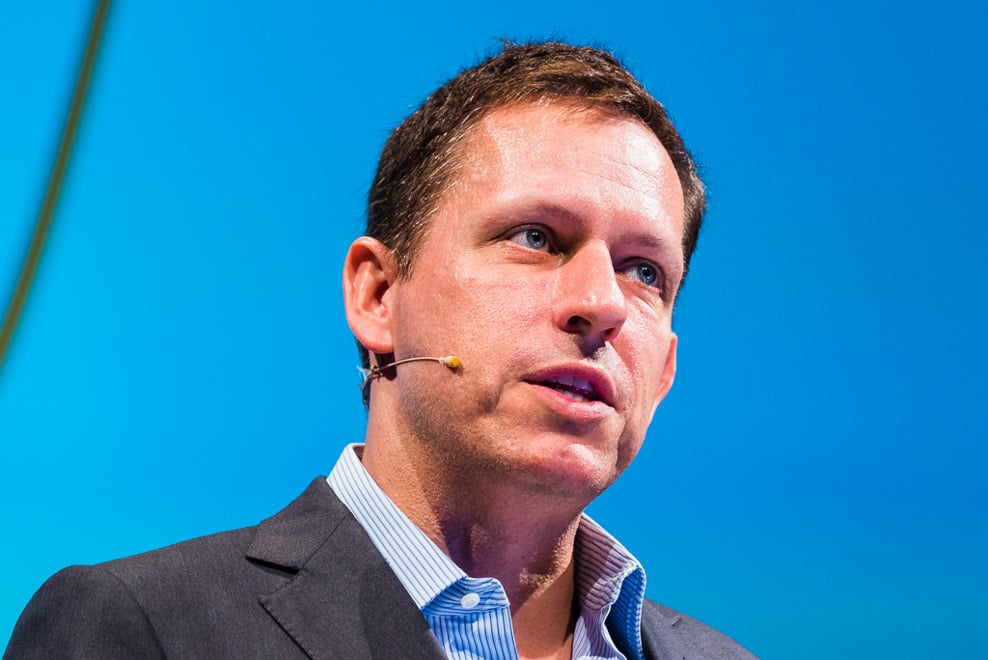“Stanford Analytica” trended on social media Tuesday afternoon as Facebook CEO Mark Zuckerberg testified before Congress on the Cambridge Analytica privacy breach and fielded questions about data mining startup Palantir. But what does Stanford or Palantir have to do with Facebook’s data disaster?
When Senator Maria Cantwell of Washington used the name “Stanford Analytica” for Palantir, she was making a dig at the notoriously secretive tech startup that, like Cambridge Analytica, has close ties to an elite university deeply embedded in the private sector technology and data analytics scene — all but one of the five Palantir founders completed degrees at Stanford. Co-founder Peter Thiel ’89 JD ’92 continues to maintain networks with The Stanford Review, and a healthy contingent of Stanford-educated interns and employees joins Palantir each year.
But the connection between Palantir and the scandal now embroiling Facebook goes deeper than that. It was Palantir employee Alfredas Chmieliauskas who suggested that data scientists at Cambridge Analytica create a personality quiz app to access data about Facebook users’ friend networks, The New York Times reported.
As part of Tuesday’s hearing, Cantwell asked Zuckerberg whether Palantir — whose co-founder Thiel sits on Facebook’s board of directors — had ever scraped data from Facebook. “Senator, I’m not aware of that,” Zuckerberg answered. He later said in reply to another question that he was “not that familiar with what Palantir does.”
Earlier on, Cambridge Analytica whistleblower Christopher Wylie had implicated Palantir in the misuse of Facebook data.
“There were Palantir staff who helped build the models that we [Cambridge Analytica] were working on,” Wylie told members of the UK parliament. “There were senior Palantir employees that were also working on the Facebook data.”
Palantir disputes Wylie’s claims.
“Palantir has never had a relationship with Cambridge Analytica nor have we ever worked on any Cambridge Analytica data,” a Palantir spokesperson told TechCrunch.
The spokesperson acknowledged that an employee “engaged in an entirely personal capacity with people associated with Cambridge Analytica,” an association that the company is currently looking into.
The Times story exposing Cambridge Analytica’s links to Palantir characterized the latter as a “top Silicon Valley contractor to American spy agencies and the Pentagon”; other journalism about the company has emphasized Thiel’s support for President Donald Trump, whose campaign allegedly benefited from Cambridge Analytica’s data). But the nature of Palantir’s business is famously murky, whether to the media or to industry players interested in the company’s finances and valuation.
A document leaked to TechCrunch in 2015 revealed that the company’s operations as of 2013 focused on making human data easily accessible for clients, who do not need to be able to code to query huge datasets. Applications range from public sector uses such as “predictive policing” to analyzing consumer behavior to humanitarian efforts such as aid distribution to refugees. A 2016 Mercury News profile quoted “a person close to the company” stating that “at least 60 percent of the company’s work is with for-profit companies” despite its roots as a government and defense contractor — but because Palantir is not a publicly-traded firm, its clients, finances and activities remain largely unknown to the general public.
For a company that deals in large quantities of data about human beings, Palantir’s secrecy about its practices has also raised concerns among some who believe the public may be unable to hold the company accountable for possible violations of personal privacy.
The Daily rounded up a timeline of news about Palantir and its relationship with Stanford.
Selected timeline
2004 — Palantir founded by Peter Thiel ’89 JD ’92, Joe Lonsdale ’04, Stephen Cohen ’05 and Nathan Gettings. Alex Karp JD ’92 joins as CEO and becomes a co-founder. Early backers included the CIA venture capital arm In-Q-Tel.
2008-2009 — Palantir technology helps Canadian investigators to uncover a cyber spying operation (dubbed “GhostNet”) that affected 1,200 government computers.
Feb 2011 — Internal documents reveal Palantir drafted plans to track Wikileaks donors, attack its web infrastructure and intimidate supporters. The plans were drafted for Bank of America in response to Wikileaks threatening to release some of the company’s internal documents. The offending engineer was suspended but not fired.
2013-2014 — Palantir acquires Voicegem, a web and iOS based voice-messaging platform developed by Stanford computer science graduates, as well as PopTip, a startup that “analyzes and synthesizes social conversations in real-time to enable brands to understand people’s opinions.”
2014 — Ellie Clougherty ’14 accuses Palantir co-founder Joe Lonsdale ’04 of sexual assault following the end of a relationship that began when Lonsdale mentored Clougherty in a Stanford course on technology entrepreneurship. Stanford reverses its initial finding that Lonsdale violated University Title IX policy, and Clougherty later drops her original suit — but the case remains a top search item connecting Stanford and Palantir.
Jan. 20, 2017 — Stanford students join tech workers and Silicon Valley residents in a protest against technology misuse amid fears that Trump’s inauguration would see the creation of a Muslim registry using data mining software.
June 2017 — The NYPD ends its relationship with Palantir after six years. The Palantir contract reportedly cost the NYPD up to $3.5 million annually. Going forward, the NYPD plans to use an internally developed analytical platform.
Mar. 9, 2018 — Palantir wins a $876 million U.S. Army contract, the latest in a series of successes in Washington since Trump’s election.
March 2018 — New Orleans police end partnership with Palantir, which had used network analysis software to identify potential aggressors and victims of violence without public knowledge for six years.
Contact Nicholas Midler at midler ‘at’ stanford.edu.
